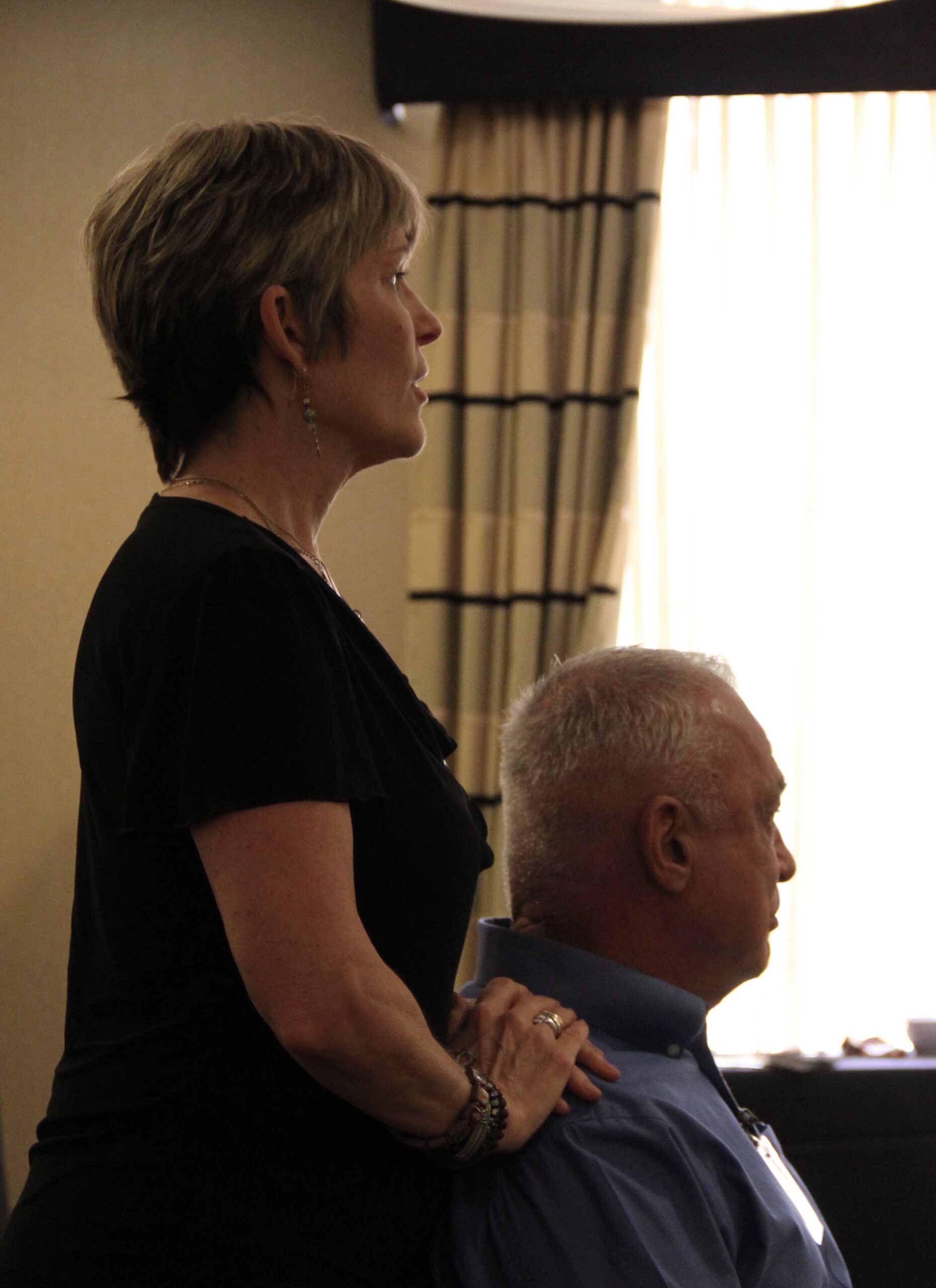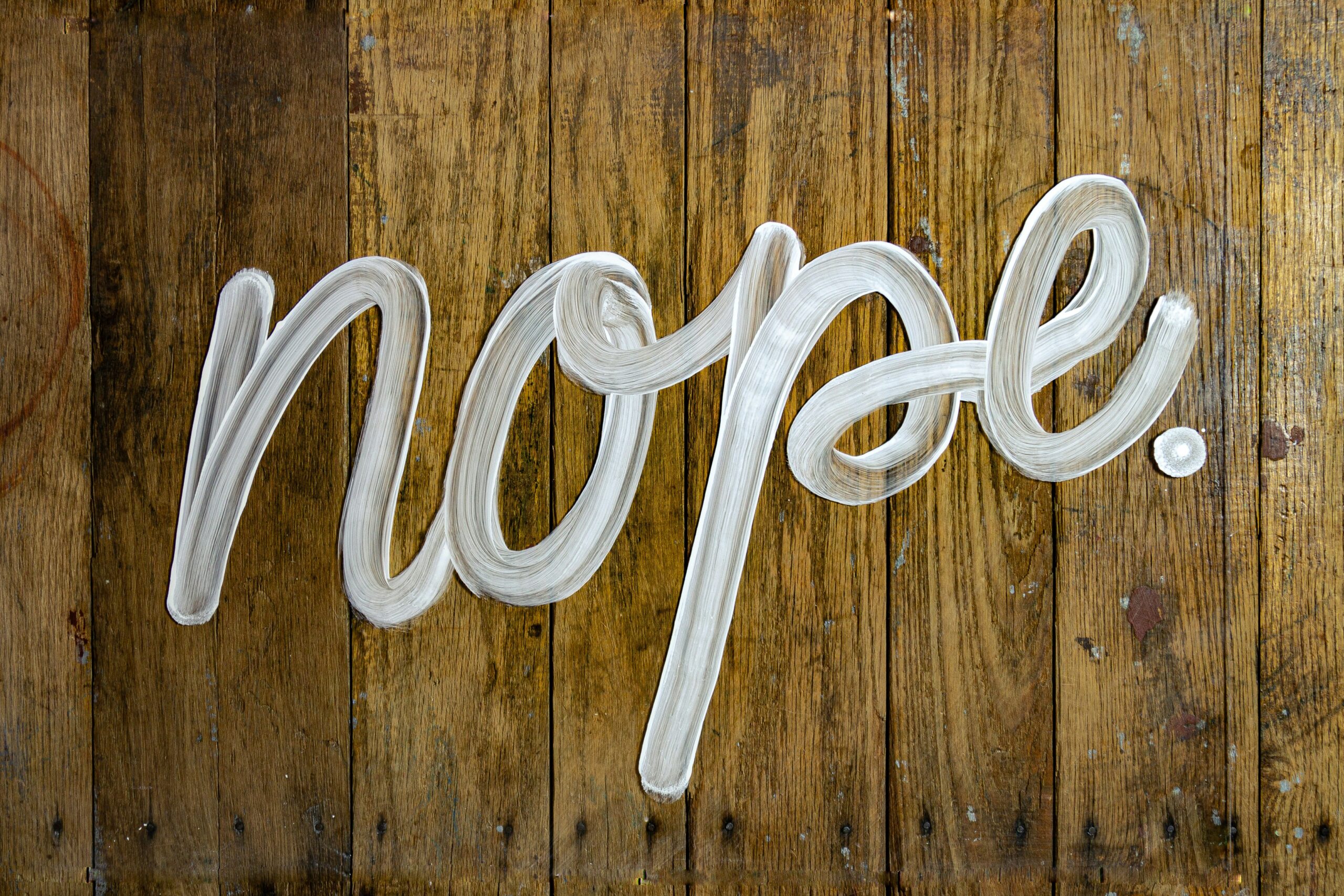
Why i disagree with brene brown
I listened to Brene Brown’s multi-episode discussion on her podcast, Dare to Lead, regarding her new book, Strong Ground. She had organizational…
...
As the holidays descend upon us, I want to remind you of one of the most important words you have available to you this season. No.
Even if you’re really looking forward to all the parties and gatherings and the shopping and the time with friends and family, no will still be an option, because one of the vital things to remember this season is to pace yourself.
Saying no may be very difficult if you were raised to be kind and to “not complain,” and to go along to get along. And if that’s the case, it may be extremely difficult to make decisions that are in alignment with your needs, your wants, and your bandwidth. So how do you know when to say yes and when it’s a no?
Let me give you an idea from the world of medicine.
In order to figure out a diagnosis, doctors often have to rule out what it isn’t first before they can get clear on what it is. You go to the doctor’s office because you have what you think is a lingering chest cold. They do tests and they rule things out.
Allergies? No.
COVID? No.
Flu? No.
Pneumonia? Yes.
Now we have a clear idea of what we’re dealing with, so we know how to proceed.
The equivalent of this is to imagine yourself walking into an event, and tuning in to what your body is saying. Are you feeling a fluttering of excitement in your chest because you’re looking forward to it?
Or are you feeling a heaviness of dread in your gut? The location and sensations may be different for you, but if you can sit still for just a few minutes and ask your body whether you want to go, you’ll likely get a clear answer. And if the information you receive is a sense of dread, then no is a complete sentence, period.
You can say no to a certain party; no to buying a certain gift because it’s too expensive; no to baking something for an event because you know you won’t have the time.
Now, I recognize that there are some events that are more difficult to say no to than others: A work party or a family gathering that everyone is expected to attend.
But you can also plan ahead for it. Here are some ideas about how to take care of yourself in the midst of it all:
Don’t go to three or four gatherings in one day. Pick one or maybe two, if it’s with people with whom you enjoy spending time. It’s easy to get swept up into wanting to attend everything, and it is really okay to say no to some things.
When I decide to not go to a party this time of year, I make a point of connecting with the host to make a date to get together in January or February. So we can have some quality time together rather than trying to have it when there are 25 other people around.
2. If you do go to a somewhat challenging event, it can be helpful to bookend it with a close friend.
You can call someone safe before the event, and share how you’re feeling. You might also consider setting a time for when you’re going to call them back, so that you have an excuse to leave the party. Then when you do leave, call them again, and debrief on how it went.
In the recovery rooms, we call alcohol “liquid courage,” because it allows us to do things and say things we might not normally do. It’s tempting to drink or get high when you’re anxious about being in certain environments – or being around certain people – but the reality of what happens in our brains when we start drinking or using drugs is that the ability to make rational decisions drops.
This is not a judgment on whether you can handle alcohol or drugs, and I’m definitely not saying you’re an alcoholic or a drug addict. What I am saying is that if you want to have a clear mind in order to make decisions that work best for you, then it’s a good idea to abstain. Just for that night.
4. My very first therapist, Dick Grachek, always used to say, “When you visit your family, keep the motor running.” If you go out of town to visit family or friends, it’s a good idea to book your own hotel room or a VRBO, so you have your own place to retreat to, to decompress and to have some privacy.
That way, you can choose the amount of time you want to spend with people and have balance, especially when you’re out of town, which can be dysregulating enough because you’re out of your own element. Even when you’re pressured to stay with family, it’s okay to say no.
5. Decide how long you’re going to stay before you go
You can leave early, whether it’s a party you’re going to near home or whether you’re traveling. Years ago, I had a client who went to visit her family for Thanksgiving, and she was staying at her parents’ house in her old bedroom. She had planned to stay from Wednesday until Sunday afternoon, but called me Friday morning and said, “I feel like I’m 15 years old again, and everyone is treating me like I’m still shooting dope, even though I’ve got almost a year clean. Am I crazy?”
Because she was back in her childhood home, surrounded by family members who had no recovery of their own, all of my client’s feelings from when she used to use drugs had re-emerged, and her family was treating her like it. It was like a time warp, and all the feelings connected to that time came flooding back – for her and her family.
I assured her she was not crazy, and I reminded her that she was under no obligation to stay until Sunday, and that she could pack her bags at any time, and get on a train home. Well, she left that night, and she went straight to a Narcotics Anonymous meeting when she got off the train.
She called me the next day and she said, “I feel like myself again.”
And by the way, I encourage people to not say they’re going home, but rather, they’re visiting family. It was your home years ago, but it isn’t anymore.
It may sound like semantics, but part of the way we hold on to who we are as an adult, is that we remember that we have a home. It’s the one we’ve created.
6. If you are in recovery, make a plan before you go out of town.
Set up times to connect with your sponsor or some of your buddies in whatever fellowship you’re part of: Alcoholics anonymous, Narcotics anonymous, Al-Anon, et cetera. Check out the local meeting schedule for those fellowships and make a specific plan to attend meetings while you’re there.
7. Something else to consider if you’re in recovery, especially early recovery, is that you can bring a sober friend with you to gatherings. I certainly did this in the early years of my sobriety. I brought a sober friend with me who I could talk to about what was going on; who could give me a reality check about what was happening, or with whom I could just go take a walk around the block so I could get a break.
And if it’s your first gathering since you got sober, be clear in advance how you want to respond when someone offers you a drink or asks you why you’re not drinking.
They didn’t question it, and I then quickly changed the subject. What I tell people now is, “I’ve discovered that I’m allergic to it,” and that’s the truth. An allergy is an abnormal reaction to something and I have an abnormal reaction to alcohol. When I have one drink, I can’t stop. So I don’t have the first one and I’m okay.
8. If you are around people who are sober – especially newly sober – please don’t offer them a drink, or pressure them to have one, or tease them about not drinking. And if you are the sober person and those around you can’t honor your “no,” you can leave or walk away.
If you’re hosting a party, please have non-alcoholic drinks at your house, sodas, sparkling cider, etc. If you have friends or family members who are sober and they’ll be attending your party, you can either ask them what kind of drinks they need or you can even ask them to bring something that they can drink so you don’t have to stress about that.
9. If you’re someone who has dietary needs – being vegan, being gluten free, etc, one thing to consider is to bring your own food with you, or at least some of your food. That way you don’t have to stress about whether or not there will be something you can eat, you don’t have to ask a bunch of questions about what’s in the food, and your host/hostess doesn’t have to stress making sure you’re taken care of.
For example, when I go to my nephew and his wife’s for Thanksgiving, they are incredibly generous and make some of the dishes vegan for me and for the two or three other vegans at the party. But what I do is I bring protein for me to eat. That way I know I’ll be taken care of and they don’t have to stress. Easy peasy.
10. This is a hard one.
Stay within your spending limits. Money is tight for a lot of people right now, so give yourself some grace and spend within your means rather than going into debt. It’s okay to say no to spending extravagantly this year.
11. Lastly – and this is a very important one – don’t get so caught up in the hustle and bustle that you miss the day. Instead of frantically trying to find the perfect gift or trying to make the best holiday ever for everyone – to the extent that you end up dysregulated – pause and breathe and take breaks, so you don’t miss the connections or miss the moments.
I have a friend who was so busy running around, putting all the wrapping paper in the garbage as soon as her kids tore open their presents, that she missed the moments of sheer delight on her children’s faces when they unwrapped certain gifts.
The mess can wait, those moments won’t.
Nobody’s going to remember if the ribbon on the box was the exact same color as the wrapping paper, nobody’s going to care if the dessert you made has a little bit of mess on the icing. But they will remember the smile on your face when you greet them at the front door when they arrive.
So whether it’s your putting up your Christmas tree, or lighting the Hanukkah candles or playing dreidel or lighting the Kwanzaa candles, and sharing the significance of what each day represents, take time to savor things. Really be present for them.
The laughter at the Karamu feast. The delicious taste of the latkes. The joy on your brother’s face when he sees the ornament he gave you ten years ago hanging on your Christmas tree.
So that’s my invitation to you: Be in the moment. Savor the connection. Savor the joy.
And whether you’re celebrating gratitude this November, or celebrating Christmas or Hanukkah or Kwanzaa or New Year’s, as I like to say this time of year, Happy Everything!
This material may be protected by copyright.

I listened to Brene Brown’s multi-episode discussion on her podcast, Dare to Lead, regarding her new book, Strong Ground. She had organizational…
...
I don’t know about you, but in the last couple of weeks, rather than doom scrolling, I have been hopescrolling…
...